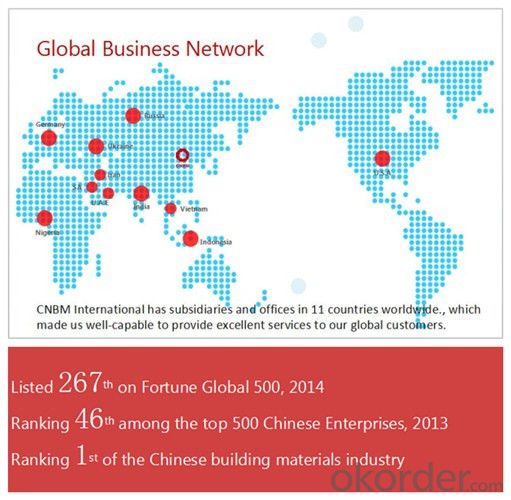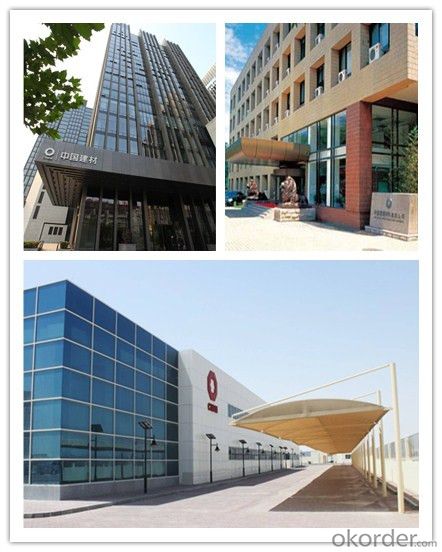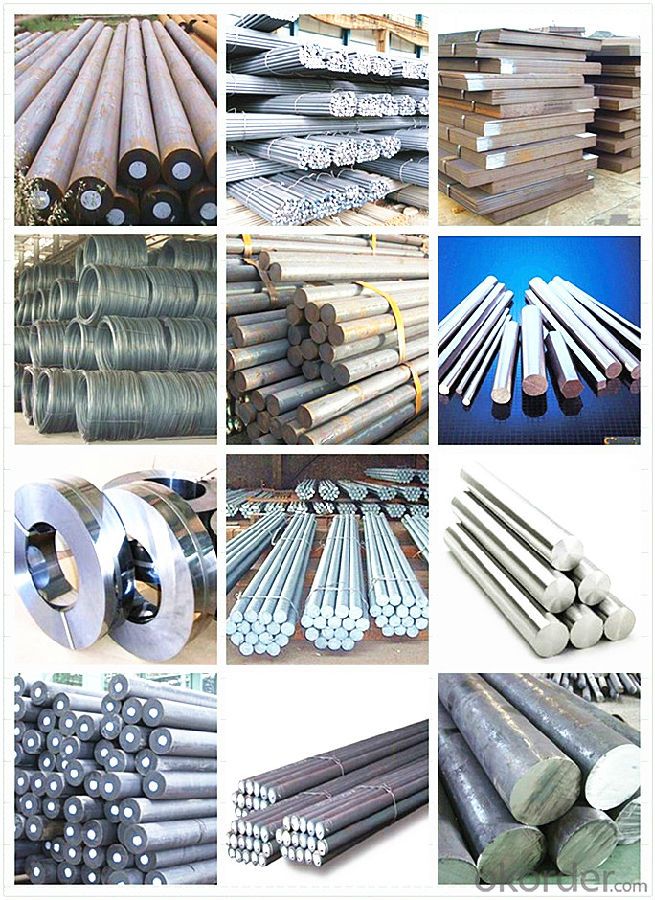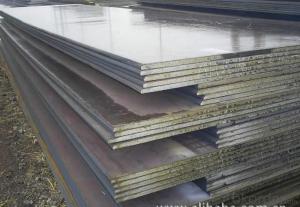Cold Rolled 2B 304 Stainless Steel Metal Sheet Price
- Loading Port:
- Tianjin
- Payment Terms:
- TT OR LC
- Min Order Qty:
- 3 m.t.
- Supply Capability:
- 100000 m.t./month
OKorder Service Pledge
OKorder Financial Service
You Might Also Like
Item specifice
Cold Rolled 2B 304 Stainless Steel Metal Sheet Price
Detailed Information of Cold Rolled 2B 304 Stainless Steel Metal Sheet Price
| C | Si | P | S | yield Strength MAp | Tensile strength MAp | Elongation % | ||
| A36 | 0.24 | 0.4 | 0.045 | 0.03 | 250 | 400-520 | 26 | |
| C | Si | Mn | P | S | Cu | |||
| A283 | ≤0.27 | 0.15-0.4 | ≤0.9 | ≤0.035 | ≤0.04 | ≥0.2 | ||
| Thickness: | 6mm, 8mm, 12mm, 16mm, 20mm, 25mm, 30mm, 50mm, 80mm, 100mm, 150mm, 200mm | |||||||
| Width: | 1500mm, 1800mm, 2000mm, 2200mm, 2500mm | |||||||
| Length: | 6000mm, 8000m, can cut to width and length | |||||||
| Packing Details; | according to customer‘s require or export’s standard | |||||||
| Delivery time; | 7 days for stock sizes, 20-25 days for new production sizes | |||||||
| Port: | Tianjin China | |||||||
Related Products Overviews of Cold Rolled 2B 304 Stainless Steel Metal Sheet Price
Product Name | Typical Grades | Diameter(mm) | Standard Adopted |
Carbon Steel | 20 (1020/S20C/C22) |
Ø16-Ø300 |
GB/SAE/ JIS/DIN |
40 (1040/S40C/C40) | |||
45 (1045/S45C/C45) | |||
Bearing Steel | GCr9 (51100/SUJ1) |
Ø12-Ø250 | |
GCr15 (52100/SUJ2/100Gr6) | |||
GCr9SiMn (A485-Gr.1/SUJ3) | |||
Cr-Mo Steel | 20Cr (5120/SCr420H/20Cr4) |
Ø12-Ø250 | |
40Cr (5140/SCr440/41Cr4) | |||
42CrMo(4140/SCM440/42CrMo4) | |||
Gear Steel | 20CrNiMo |
Ø16-Ø600 | |
20CrMn(5115/SMnC420/20MnCr5) | |||
20CrNiMo(8620/SNCM220/20CrMiMo2) |
Related Products Application of Cold Rolled 2B 304 Stainless Steel Metal Sheet Price
Carbon Steel | l Mold bottom l Plastic mold l Construction machinery parts l Automobile parts l Security grills l Screens l Construction |
Bearing Steel | l Aerospace l Navigation l Nuclear energy l Chemical industry l Electronic information l Petrochemical l Instrument and meter l Transportation |
Cr-Mo Steel | l Mechanism & Fasteners gear l Stressed components for vehicles l Engines and machines l Parts of larger cross-section |
Gear Steel | l All kinds of gears l Statically and dynamically stressed component for vehicles l Engines and machine l Larger cross-section parts l Crankshafts |
Company Introduction of Cold Rolled 2B 304 Stainless Steel Metal Sheet Price
CNBM International Corporation is the most import and export platform of CNBM group(China National Building Material Group Corporation) ,which is a state-owned enterprise, ranked in 270th of Fortune Global 500 in 2015.
With its advantages, CNBM International are mainly concentrate on Cement, Glass, Iron and Steel, Ceramics industries and devotes herself for supplying high quality series of refractories as well as technical consultancies and logistics solution.


After-sale service | l CNBM provides the services and support you need for every step of our cooperation. We’re the business partners you can trust; you can relax and get on with doing business. l For any problem, please kindly contact us at any your convenient time, we’ll reply you in our first priority within 24 hours
|
Advantages
| l Industry experience over 20 years. l Shipment of goods -More than 70 countries worldwide. l The most convenient transport and prompt delivery. l Competitive price with best service. l High technical production line with top quality products. l High reputation based on best quality products.
|
Packaging & Delivery of Cold Rolled 2B 304 Stainless Steel Metal Sheet Price
Packaging Detail | Sea worthy packing /as per customer's packing instruction |
Delivery Detail | 15 ~ 40 days after receiving the deposit |
Products Show

FAQ:
Are you a trading company or manufacturer? | Manufacturer |
What’s the MOQ? | 3 metric ton |
What’s your delivery time? | 15-35 days after downpayment received |
Do you Accept OEM service? | Yes |
what’s your delivery terms? | FOB/CFR/CIF |
What's the Payment Terms? | 30% as deposit,70% before shipment by T/T |
Western Union acceptable for small amount. | |
L/C acceptable for large amount. | |
Scrow ,Paybal,Alipay are also ok | |
Why choose us? | Chose happens because of quality, then price, We can give you both. Additionally, we can also offer professional products inquiry, products knowledge train (for agents), smooth goods delivery, excellent customer solution proposals. |
What's your available port of Shipment? | Main Port, China |
What’s your featured services? | Our service formula: good quality+ good price+ good service=customer's trust
|
Where are your Market? | Covering more than 160 countries in the world |
- Q:What are the applications of special steel in the manufacturing supply chain?
- Special steel has a wide range of applications in the manufacturing supply chain. It is commonly used in industries such as automotive, aerospace, construction, and energy. Special steel's high strength, durability, and corrosion resistance make it ideal for manufacturing critical components, such as engine parts, bearings, gears, and structural elements. Additionally, its ability to withstand high temperatures and extreme conditions allows for its use in manufacturing tools, molds, and dies. Overall, special steel plays a vital role in enhancing the performance, reliability, and efficiency of various manufacturing processes and products.
- Q:How does special steel contribute to the manufacturing industry?
- Special steel contributes to the manufacturing industry by providing a high-quality and versatile material that can be used in various applications. Its unique properties, such as increased strength, durability, and resistance to corrosion, make it suitable for manufacturing components and machinery used in sectors like automotive, aerospace, construction, and energy. Special steel enhances product performance, extends equipment lifespan, and enables the development of innovative solutions, ultimately driving productivity and competitiveness in the manufacturing industry.
- Q:What are the different methods of controlling the grain size in special steel?
- To achieve desired mechanical properties and performance, there are multiple approaches available for controlling the grain size in special steel. The following are some of the techniques that can be employed: 1. Alloying: The grain size in steel can be controlled by carefully selecting and managing the composition of alloying elements. Elements like niobium, vanadium, and titanium have proven effective in refining the grain size. 2. Heat treatment: The grain size can be regulated through the process of heat treatment. Techniques such as annealing, normalizing, and quenching can be utilized to manipulate the grain size. For example, slow cooling during annealing encourages the growth of larger grains, while rapid cooling during quenching leads to smaller grain sizes. 3. Deformation processing: Mechanical deformation methods like rolling, forging, or extrusion can aid in refining the grain structure. These processes induce strain and facilitate the formation of smaller and more uniform grains. 4. Grain growth inhibitors: The addition of specific elements like aluminum or zirconium to the steel can act as inhibitors for grain growth. These elements create fine particles that impede the growth of grains during heat treatment, resulting in a smaller grain size. 5. Control of transformation temperature: Manipulating the transformation temperature during heat treatment allows for control over the grain size. Lowering the austenitizing temperature, for example, can yield a finer grain structure in the final product. 6. Rapid solidification: Employing techniques such as spray forming or rapid quenching can lead to an ultrafine-grained microstructure. The rapid cooling prevents grain growth, resulting in a fine and homogeneous grain structure. 7. Severe plastic deformation (SPD) techniques: Techniques like equal channel angular pressing (ECAP) or high-pressure torsion (HPT) impose significant strain on the material, leading to a refined grain structure. These methods are commonly used for producing ultrafine-grained or nanostructured steels. It is essential to consider the desired properties, alloy composition, and intended application of the final product when choosing a method for controlling the grain size in special steel.
- Q:What are the main characteristics of tool steel forgings?
- Tool steel forgings have several main characteristics that make them highly desirable for a variety of applications. First and foremost, tool steel forgings are known for their exceptional durability and strength. They are specifically designed to withstand high levels of stress, making them ideal for applications where toughness and resistance to wear and tear are crucial. This strength allows tool steel forgings to maintain their shape and integrity even under extreme conditions, such as high temperatures or heavy loads. Another key characteristic of tool steel forgings is their excellent hardness. Tool steel is able to achieve high levels of hardness through a process called quenching and tempering, which involves heating the steel to a specific temperature and then rapidly cooling it. This hardness makes tool steel forgings highly resistant to abrasion, making them suitable for cutting, shaping, and forming materials. Additionally, tool steel forgings exhibit excellent dimensional stability. This means that they have minimal distortion or shrinkage when subjected to heat or pressure, making them ideal for precision tooling applications. Their dimensional stability also ensures that the forgings maintain their accuracy and reliability over time, which is essential in industries such as manufacturing and engineering. Furthermore, tool steel forgings offer good machinability, meaning they can be easily shaped, drilled, and cut to meet specific requirements. This makes them versatile and adaptable for a wide range of applications, from forming complex shapes to creating intricate designs. Lastly, tool steel forgings have excellent wear resistance. This characteristic allows them to maintain their cutting edges and surfaces for extended periods, reducing the need for frequent sharpening or replacement. This wear resistance is particularly advantageous in industries such as automotive, aerospace, and tool manufacturing, where longevity and efficiency are paramount. In conclusion, the main characteristics of tool steel forgings include exceptional durability and strength, high hardness, excellent dimensional stability, good machinability, and excellent wear resistance. These characteristics make tool steel forgings highly sought after in various industries, where reliability, precision, and longevity are critical.
- Q:What are the different chemical resistance grades of special steel?
- Special steels, commonly known as stainless steels, possess exceptional resistance to corrosion and chemical attack. They are a category of alloys that contain a substantial amount of chromium, which forms a protective oxide layer on the surface, preventing further corrosion. The chemical resistance of special steel may vary depending on the particular grade or alloy composition. Below are some of the typical chemical resistance grades of special steel: 1. Austenitic Stainless Steel: This is the most prevalent stainless steel type and exhibits excellent resistance to a broad range of chemicals, including organic acids, alkalis, and salts. The most commonly used grade in this category is 304 stainless steel. 2. Ferritic Stainless Steel: Ferritic stainless steels have lower corrosion resistance compared to austenitic grades but still offer good resistance to many chemicals. They are particularly resistant to nitric acid and some organic acids. Grade 430 stainless steel serves as a common example of ferritic stainless steel. 3. Martensitic Stainless Steel: Martensitic stainless steels are recognized for their high strength and hardness. Although they have lower corrosion resistance compared to austenitic and ferritic grades, they can still exhibit good resistance to certain chemicals, especially in mildly corrosive environments. 4. Duplex Stainless Steel: This type of stainless steel combines the properties of both austenitic and ferritic grades, resulting in enhanced strength and improved resistance to stress corrosion cracking. Duplex stainless steels offer excellent resistance to a wide range of chemicals, including organic acids, chloride-containing solutions, and saltwater. 5. Precipitation-Hardening Stainless Steel: These steels can undergo heat treatment to achieve high strength and corrosion resistance. They typically exhibit resistance to a broad range of chemicals, including organic acids, alkalis, and some organic solvents. It is crucial to note that the chemical resistance of any steel grade can also be affected by factors such as temperature, chemical concentration, and the presence of other corrosive agents. Therefore, it is advisable to consult the manufacturer's specifications or seek expert advice when selecting a special steel grade for specific chemical resistance requirements.
- Q:How does special steel contribute to the defense aftermarket industry?
- Special steel plays a crucial role in the defense aftermarket industry by providing enhanced strength, durability, and resistance against extreme conditions. This allows for the manufacturing of high-performance components and equipment, such as armored vehicles, aircraft, and naval vessels. Special steel's unique properties enable the production of advanced weaponry and protective gear, ensuring the safety and effectiveness of defense operations. Additionally, its ability to withstand intense heat and pressure makes it ideal for critical applications like missile guidance systems and nuclear reactors. Overall, special steel is an essential material that drives innovation and strengthens the capabilities of the defense aftermarket industry.
- Q:What are the common heat treatment methods used for special steel?
- The common heat treatment methods used for special steel include annealing, normalizing, quenching, tempering, and hardening.
- Q:Can special steel be used in corrosive environments?
- Yes, special steel can be used in corrosive environments. Special steel alloys are specifically designed to have enhanced resistance to corrosion caused by various elements such as moisture, chemicals, or saltwater. These alloys are carefully formulated with specific elements, such as chromium or nickel, which create a protective layer on the surface of the steel, preventing or minimizing corrosion. As a result, special steel is widely utilized in industries such as marine, oil and gas, chemical processing, and wastewater treatment, where exposure to corrosive environments is prevalent.
- Q:How is special steel made?
- Special steel is made through a process called alloying, where different elements are added to iron to enhance its properties such as strength, durability, and resistance to corrosion. This alloying process can include elements like chromium, nickel, vanadium, and manganese, among others. The exact composition and manufacturing process can vary depending on the desired characteristics and application of the special steel being produced.
- Q:Can special steel be used in the production of springs for watches?
- Yes, special steel can be used in the production of springs for watches. Special steel, such as stainless steel or high-carbon steel, is often preferred for making watch springs due to its durability, corrosion resistance, and ability to retain its shape and elasticity over time.
1. Manufacturer Overview |
|
|---|---|
| Location | |
| Year Established | |
| Annual Output Value | |
| Main Markets | |
| Company Certifications | |
2. Manufacturer Certificates |
|
|---|---|
| a) Certification Name | |
| Range | |
| Reference | |
| Validity Period | |
3. Manufacturer Capability |
|
|---|---|
| a)Trade Capacity | |
| Nearest Port | |
| Export Percentage | |
| No.of Employees in Trade Department | |
| Language Spoken: | |
| b)Factory Information | |
| Factory Size: | |
| No. of Production Lines | |
| Contract Manufacturing | |
| Product Price Range | |
Send your message to us
Cold Rolled 2B 304 Stainless Steel Metal Sheet Price
- Loading Port:
- Tianjin
- Payment Terms:
- TT OR LC
- Min Order Qty:
- 3 m.t.
- Supply Capability:
- 100000 m.t./month
OKorder Service Pledge
OKorder Financial Service
Similar products
New products
Hot products
Hot Searches
Related keywords

































